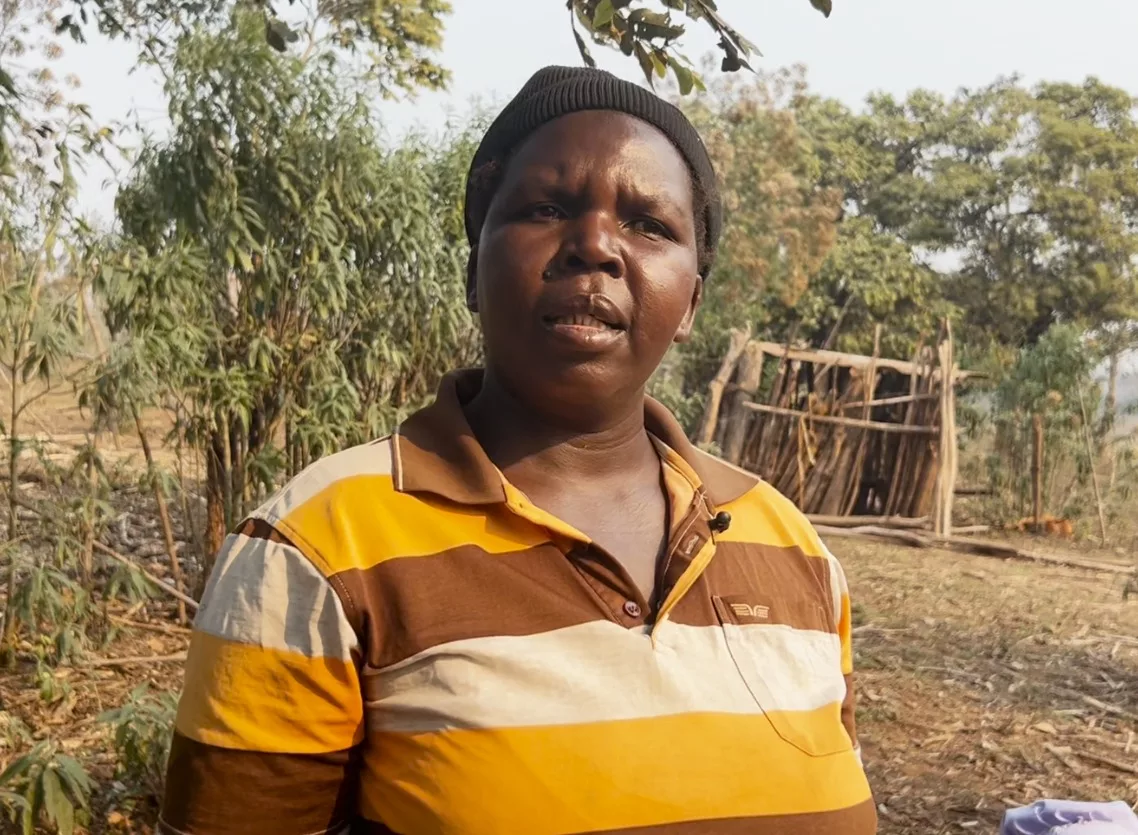|
Getting your Trinity Audio player ready...
|
Writes Pylaia Chembe
Headman Mandamugiyo was overwhelmed with resolving domestic cases. In his traditional court in Foroma Village, Chipinge District, two out of every five cases were related to Gender Based Violence (GBV).
He commented that bread-and-butter issues were largely responsible for the domestic conflicts in his community. This community is in Zimbabwe’s dry southern region and is heavily impacted by climate change. He cemented his point of view with the well-known saying, “A hungry man is an angry man,” highlighting how critical the issues were.
However, this trend changed when the United Nations Development Programme (UNDP) introduced the Climate Resilient Livelihoods (CRL) project being supported by the Government of Zimbabwe and the Green Climate Fund (GCF). The partners have begun to create a safer and more supportive community for all.
Headman Mandamugiyo expressed his gratitude for the project, which has made his work more manageable and promoted peace within his community.
“The introduction of savings groups has provided my community, especially couples, with an opportunity to earn their own income, which has been essential in reducing domestic conflicts,” noted the traditional leader.
Village savings and lending groups (VS&L) are small, member-run groups that provide saving opportunities and low-interest loans from savings. They provide an alternative to formal banks for low to non-income earners and can help communities invest in themselves.
This component was introduced as a sustainability measure to ensure farmers can fund their agricultural activities even after the project has been completed.
Lucia Mashava, a 48-year-old woman from the village, shared that the project has brought immense peace and joy to her home.
“In my 29 years of marriage, I have never enjoyed spending time with my family as much as I do now. Previously, arguments with my husband over money, or the lack of it, and my children fighting among themselves for food were common in our home, but not anymore,” Lucia said with a bright smile.
“These days, my husband and I have many other topics to discuss besides arguments over finances,” she added.
Lucia has eight children, three grandchildren, and two extended family members whom she is also caring for.
Taurai Mbambu, a father and grandfather from the same village, shared that the project has significantly improved their mental health. It provides them with something to look forward to each day and offers a steady source of income.
“When UNDP introduced the VS&L groups, I initially thought they were only for women. However, when my wife bought a bed and blankets after their share-out, I felt challenged as the head of the family and decided to join as well,” Mr. Mbambu expressed.
“When we meet as groups, we discuss not only finances but also various issues that affect us and our families. This includes strategies for addressing conflicts without resorting to physical violence or any other form of aggression. UNDP and its partner have significantly changed our lives and behavior,” he added.
With the coming of the project, Mr. Mbambu has come to feel like a true provider for his family. He takes great pride in ensuring that his family is well-fed and properly clothed and that his children never lack school fees.
In addition to the VS&L groups, UNDP is empowering farmers to adopt climate-resilient agricultural practices by guiding them in selecting crops that thrive in local climate conditions. This initiative not only enhances food security but also boosts farmers’ livelihoods.
An investment in bee apiaries was also made in which farmers manage them, produce and sell honey. This adds an exciting opportunity for sustainable income and biodiversity enhancement.
The project manager, Mr. Rungano Benza, emphasized the transformative impact of the project on communities, notably in reducing GBV issues. He passionately believes that the valuable lessons learned by participants will pave the way for long-lasting solutions to combat GBV effectively.
The main objective of the CRL project is to strengthen the resilience of agricultural livelihoods for vulnerable communities, especially women, in southern Zimbabwe, as they face increasing climate risks and impacts.
The project uses a multi-stakeholder, market-driven approach to climate adaptation of vulnerable smallholder agriculture. Women are given the opportunity to lead and contribute to addressing the issues of food security, livelihoods, and water management.
As he envisioned the future, Headman Mandamugiyo expressed his excitement about the potential for a community that thrives despite the effects of climate change, where residents are so busy that they have little time for conflict.
“I have noticed that the project has given people plenty to occupy themselves, leading to less time for disagreements. By the time they see each other in the evening, they are likely to be too tired to argue and instead will feel satisfied with the day’s achievements. I hope this continues,” the traditional leader concluded.






